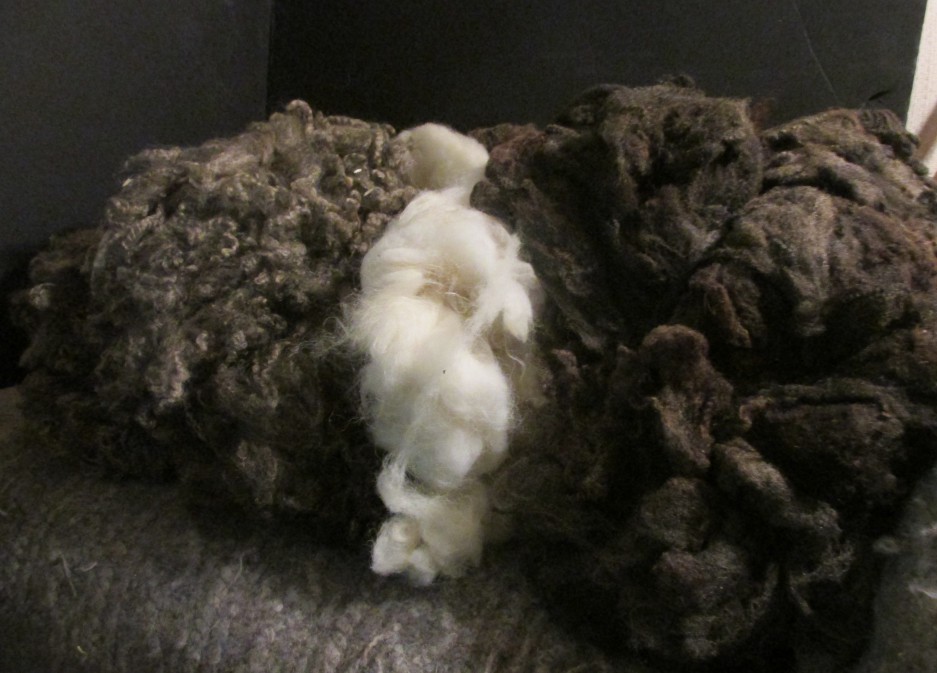Hello
FIBERuary Day 15 Peggy Hart Weaver

Photo by Tripps Eldridge Caney Fork Farm
Red Headed Sheep
For the last 30 years I have woven blankets on old industrial looms. A large part of my work is weaving blankets for sheep farmers, who send me their wool spun into yarn for me to weave it up for them. Their blankets are unique to them as I work with them to choose a pattern that will bring out their yarn’s best qualities. The breed of sheep determines much of the look and feel of the finished blanket. Over the years I have worked with many different breeds, everything from Rambouillet and superfine Merino to Churro.

One of the joys of this work for me is that every warp is different, and that there are sometimes delightful surprises. The current project is a case in point, Tunis wool from Caney Fork farm in Tennessee, spun in Michigan as a singles at Zeilingers. 100% Tunis wool had never come through my barn door before. The farmer chose an overall textural pattern of twill floats within a plain weave background. When washed up, the hand was unexpectedly soft and supple.
Tunis is an American heritage breed, developed from fat tailed Tunisian Barbary sheep crossed with Leicester and Southdown to make the wool finer and softer. The earliest documented importation were two rams gifted to George Washington by the Bey of Tunis. The two rams were placed with Judge Richard Peters of Belmont, PA, with flocks later established in PA, MD,vA, GA, NC and SC. They became the dominant breed in the midAtlantic and upper southern states until the Civil War, when they almost became extinct due to most of the stock being eaten by troops.
Tunis are hardy, medium size sheep, and adapt to both northern cold and southern heat and humidity. They are raised for both meat and wool, with the fleece in the same micron range as Corriedale and Shetland. Wool yield is on the low side, only 4-5 lbs. per ewe. The wool is a creamy white, with a crispy texture and a healthy crimp. The staple is 3”-5”.
Tunis often bear twins, and the lambs are born red (hence the name), gradually turning
white. 

Photo by Christie Davenport
Otterknol Farm Tunis Sheep
Peggy hart
